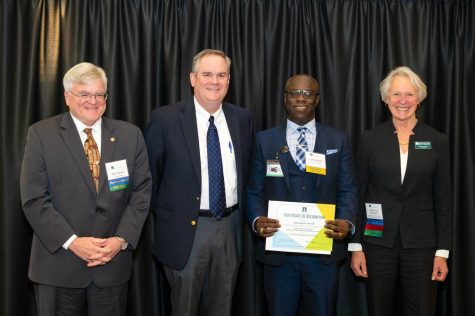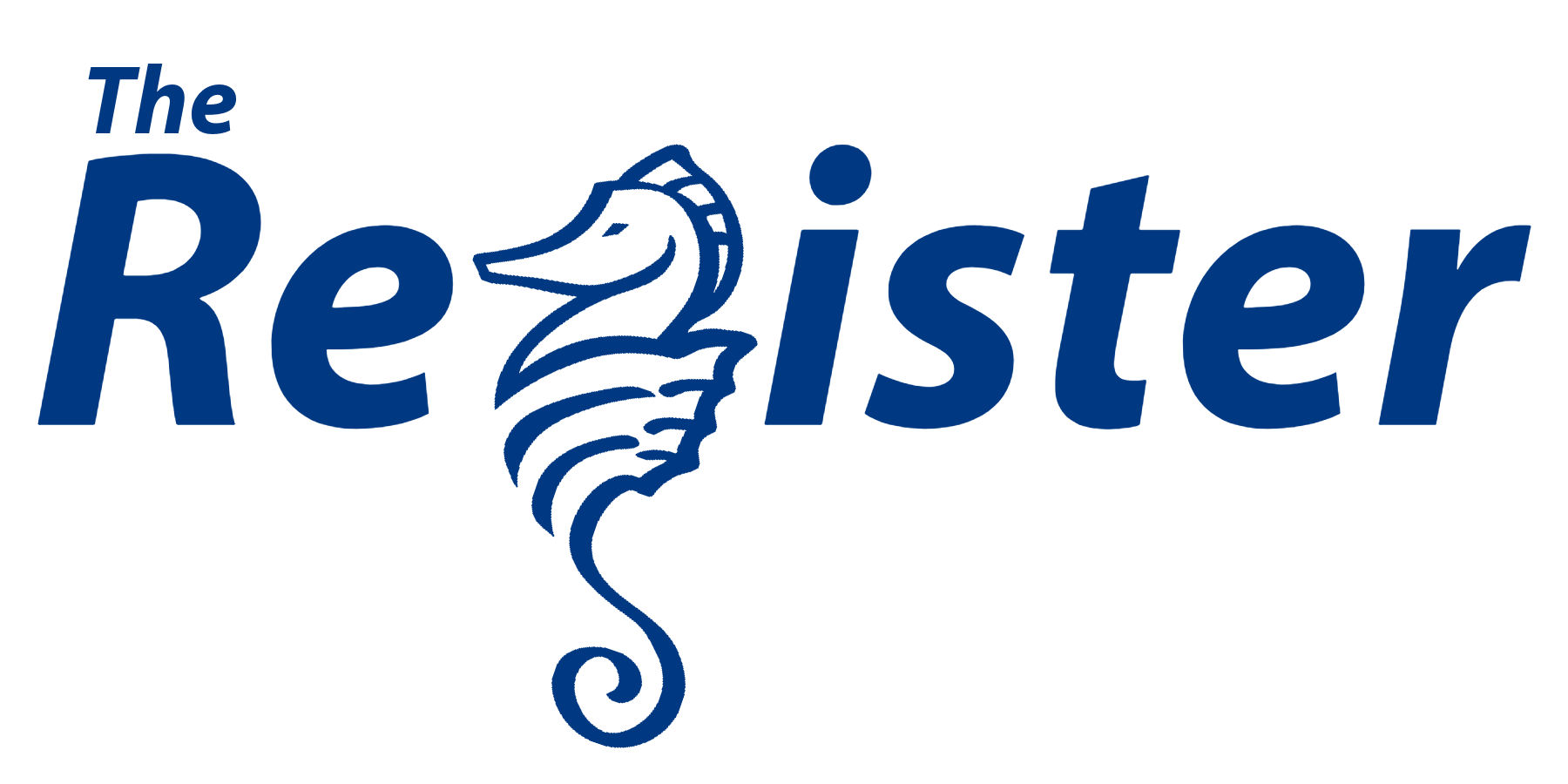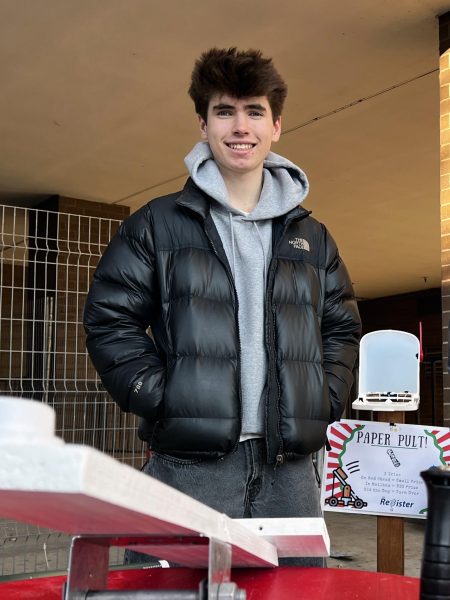A+Moah
How Kofi Amoah’s background and approach to teaching math results in extraordinary AP scores.
May 31, 2023
In 2022 Kofi Amoah was recognized as an “Outstanding Educator” by the Vermont Agency of Education. During that year, 15 out of 16 students in his AP Calculus AB class scored a perfect 5 out of 5 on the official AP Exam. For reference, in the same year, only 20.4% of test-takers across the world earned this same score. Amoah’s exceptional results were no fluke either. During the five years he taught the course, his students averaged a 4.7 on the exam compared to the national average of 2.9.
“I tend to be relentless when it comes to teaching,’ Amoah said. “I want to help all my kids. When I’m sick, I want to be here… I want to be here for students.”
Amoah joined Burlington High School in December of 2003 and has been teaching here ever since. Fellow math teacher Marcel Girourard says that whenever anyone in the department has a question, Amoah is usually the first person they go to for help.
“Regardless of the subject, whether it’s algebra, geometry or calculus,” Girourard said. “His background in [mathematics] is so vast; he’s a tremendous asset to have in our department and our school.”
The story of Amoah’s unique approach to teaching began in his home-country of Ghana where he spent his adolescence and young adulthood. The strict routines and rigorous approach of the Ghanaian school system would later inform Amoah’s approach to teaching.
“[Ghanaian schools] always made sure that you really understood what you were doing,” Amoah said. “There was less memorizing and more of a focus on really conceptually understanding things.”
Amoah’s passion for mathematics developed in high school in tandem with his passion for teaching.
“Once I figured out that math was something that I enjoyed doing, that I enjoyed the problem solving that’s involved in it, the creativity as well, I thought ‘maybe I can help my peers.”
As a top student at his boarding school, he began tutoring fellow students.
“People found out that they could come to me and get help and support with whatever math idea that they were working on,” Amoah said. “I felt like the more I helped them, the more I gained an understanding of what was being taught in class myself.”
His dedication to learning paid off, earning him an acceptance to the prestigious Kwame Nkrumah University of Science and Technology where he would major in mathematics.
After graduating, he briefly taught at the elite Akosombo international school before coming to the University of Vermont on a full scholarship.
Amoah was a teaching assistant while studying at UVM and after graduating decided to continue the pursuit.
“I had always enjoyed math and I had always enjoyed helping people,” Amoah said. “I felt like I had the ability to be able to understand math differently and to appreciate the rigorousness of mathematics and I felt like it was my duty, it was incumbent on me, to impart that kind of knowledge – especially to teenagers.”
Amoah joined Burlington High School in December of 2003. Although he was excited to teach, he would quickly learn that the U.S. secondary school system was very different from that of Ghana.
“I remember when I first started here, I was just blown away by the level of work that teachers had to do, versus what students had to do,” Amoah said. “It was a big shift for me.”

He began teaching AP Calculus AB in the 2015/2016 school year, debuting with a class average of 4.9 on the exam. Amoah was told by the then assistant principal that they were the best results ever achieved at BHS.
But Amoah hasn’t just created success at the AP level. Dalya Almogalli ‘23 was in Amoah’s Algebra II class. During her Personal Learning Plan (PLP) presentation, Almogalli shared how Amoah helped her to achieve something that she initially thought was impossible.
“Mr. Amoah is more than just a teacher; he’s a mentor and a guide who goes above and beyond to help his students succeed,” Almogalli said. “He is constantly accessible to answer questions and provide further assistance, and he takes the time to get to know his students and understand their unique learning styles and needs. … I feel lucky to have had him as my teacher.”
Amoah says it is the feedback of students like Almogalli which motivate his exhaustive approach to teaching.
“I’ll get letters or emails from my former students sometimes saying, ‘Hey Mr. Amoah, you won’t believe it, I’m doing so well in my calculus II class,’ ‘Hey Mr. Amoah, your class was so difficult but now college is so much easier. I’m a TA for this course and I’m actually getting paid.’ Those are the kind of things that really provide me with the strength and the energy to keep going.”





